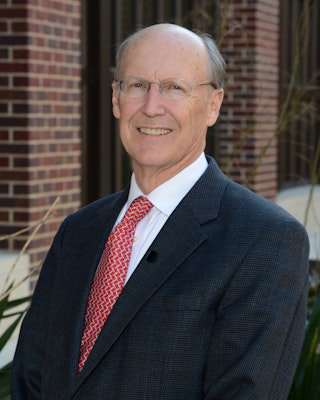Editor’s Note
Ideas matter. The Catalyst will convene leading experts and writers, as well as new and rising voices, to address contemporary issues.

Welcome to the first edition of The Catalyst: A Journal of Ideas from the Bush Institute. Each quarter, this digital journal will present ideas that help solve problems, inspire action and embolden leaders.
We will ask authors to respond in every issue to a central question or theme. Naturally, the contributors won’t all say the same thing, but these pages will bring together people from different perspectives.
In this inaugural edition, we have asked a range of individuals to focus on the issue of leadership. As you will see, we have Democrats and Republicans, we have policymakers and authors, and we have established leaders and rising leaders. We have asked each to discuss how America can prepare for 2020 and beyond.
Looking at America’s role in the world, former Secretary of State George Shultz and former United States Trade Representative Ron Kirk discuss the importance of North America over the next four years. Robert Kagan from the Brookings Institution presents his views for America’s role in the world. Former Senators Jon Kyl and Joe Lieberman, leaders of the American Enterprise Institute’s American Internationalism Project, make their case for American engagement and leadership. And Amanda Schnetzer, the Bush Institute’s Human Freedom director, and William Inboden, a former State Department official now teaching at the University of Texas at Austin, show why national security and the promotion of democracy need to go hand-in-hand.
Turning inward, several authors make the case for domestic leadership in surprising ways. Not all leadership must start in Washington, a state capital, or City Hall, after all.
Two essays deal with leadership in the economy. Mark Cuban of Dallas Mavericks and Shark Tank fame explains that entrepreneurs do not need to be the next Steve Jobs to be a leader. They instead need to recognize how the world is changing around them.
Casey Gerald makes the case for why servant leadership is needed in America’s businesses. Gerald was in the 2015 class of the Presidential Leadership Scholars program run by the presidential libraries of George W. Bush, William J. Clinton, George H.W. Bush and Lyndon B. Johnson.
Ruben Navarrette, a Bush Institute fellow and a syndicated columnist, profiles an unheralded Latino educator who shows how leadership starts in the family. Matthew Wilson, a SMU political science professor, focuses on revitalizing the strong communities and mediating institutions that Alexis de Tocqueville once found so uniquely American.
Colonel Miguel Howe, director of the Bush Institute’s Military Service Initiative, explains how returning veterans possess leadership skills that can transform America’s businesses, communities and even our political world. And he is not just talking about retired generals.
Of course, traditional political leadership is needed to deal with domestic issues that will challenge the nation over the next four years. Margaret Spellings, president of the George W. Bush Presidential Center, reminds us why public service is still a noble cause. Maya MacGuineas, president of the Committee for a Responsible Federal Budget and head of the Campaign to Fix the Debt, details what happens if Washington keeps waiting to modernize entitlement programs like Social Security. And the National Review’s Richard Brookhiser reports on how Abraham Lincoln led by immersing himself in the values of the founders, a concept that certainly has relevance today.
Oh, yes, we want to have some fun in these digital pages, too. The world can be an anxious place, so we will find ways to talk about challenges without too much of a heavy-heart. And we welcome feedback. Here’s my email: wmckenzie@bushcenter.org.
Meanwhile, we hope you enjoy this new journal and that it makes us all think about how we can build a better world.
P.S. You will receive an update of The Catalyst in February, including an interview with presidential historian Jon Meacham.
The Catalyst believes that ideas matter. We aim to stimulate debate on the most important issues of the day, featuring a range of arguments that are constructive, high-minded, and share our core values of freedom, opportunity, accountability, and compassion. To that end, we seek out ideas that may challenge us, and the authors’ views presented here are their own; The Catalyst does not endorse any particular policy, politician, or party.

